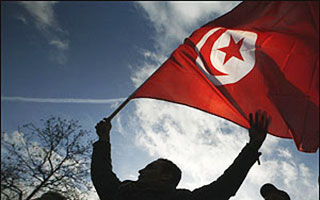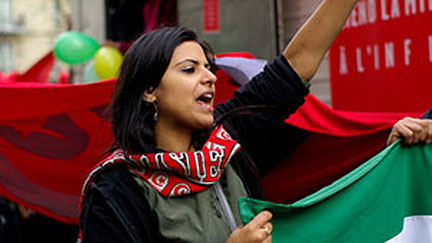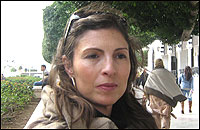Arab Spring
Council of Europe and Arab Spring

After Secretary General Thorbjørn Jagland visited Tunisia in February and offered the Council of Europe's practical cooperation, efforts are underway – from the Parliamentary Assembly and the Venice Commission, to the Pompidou Group and the North-South Centre.
The Council of Europe supports women’s rights in Africa and the Middle East

Women have been at the forefront of the Arab Spring. Many relished the promise of positive change when a series of democratic uprisings erupted in Tunisia and spread across Egypt, Libya, Yemen, Syria and the Gulf.
Women took a stand for civil society across the region and strove for a new sense of equality, long suppressed under old, patriarchal regimes.
"By offering a platform to speak out for women's rights, the Council of Europe plays its part to keep women's rights in Arab Spring countries in focus", said author and journalist Souhayr Belhassen, joint winner of the Council of Europe's North-South Prize this year. During a visit to Strasbourg on 12 March 2012, she highlighted a petition published worldwide and signed by thousands of people – including celebrities – urging Arab Spring countries to treat women with dignity, equality and respect.
On the occasion of women's day, Council of Europe Secretary General Thorbjørn Jagland said: "It is important for all of us to recognise the contribution of women in driving progress and reform, and it is essential that women's voices are now heard in building new Arab societies, and in fighting discrimination and stereotypes. If women are again left out, the promising Arab Spring could become a new winter."
© Antoine Walter / Tunisia, 15 January 2011
The Arab Spring is particularly relevant to the Council of Europe's immediate neighbours and Tunisia and Morocco have expressed their interest to strengthen co-operation with the Council of Europe, by identifying priority lines of co-operation and setting-up joint activity programmes.
Agreed in January 2012 between the European Union and the Council of Europe, a three-year project worth €4.8 million supports co-operation priorities, primarily with these two countries, in the fields of the independence and efficiency of the judiciary, the fight against corruption and human trafficking and the promotion of democratic values.
During meetings with government officials in Rabat and Tunis in early April 2012, Secretary General Jagland outlined the main elements of the new Council of Europe neighbourhood policy, which includes human rights issues tied to women's rights.
"Countries in the Arab region have asked for expert advice from the Council of Europe in a number of areas, such as constitutional reform and judicial and electoral reform, and we stand ready to assist", Jagland stressed during the visits.

An award-winning journalist, Olfa Belhassine is not only a top reporter for the Tunisian daily "La Presse", but has also published articles on the Arab Spring this year in major French publications including "Le Monde" and "Libération".

